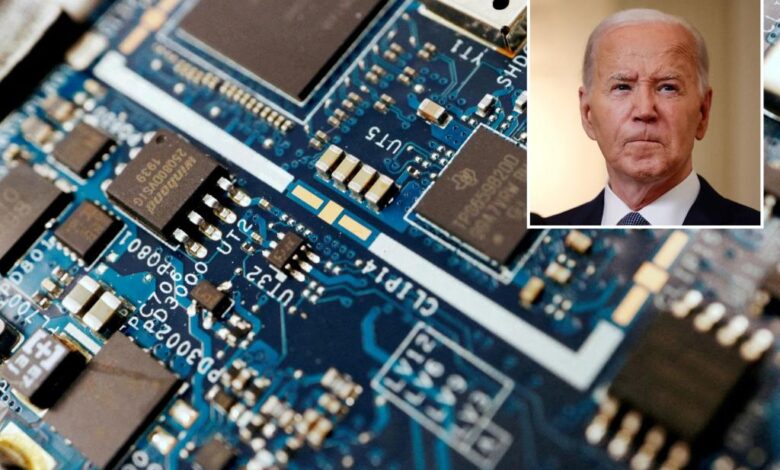Trump administration to rescind Biden-era AI chip export curbs

The Trump administration is set to reverse and modify a rule put in place by the Biden administration that restricted the export of advanced artificial intelligence chips. This move is aimed at easing restrictions on AI chip exports and promoting American innovation in the field. The Biden-era rule, known as the Framework for Artificial Intelligence Diffusion, was designed to limit global access to AI chips, with a focus on preventing China from acquiring advanced computing power that could enhance its military capabilities.
The Biden rule, which was set to take effect on May 15, divided the world into three tiers based on the level of access countries had to AI chips. The first tier included 17 countries and Taiwan, which had unlimited access to the chips. The second tier consisted of 120 other countries with caps on the number of chips they could receive. The third tier, which included countries like China, Russia, Iran, and North Korea, was blocked from accessing the chips altogether.
However, the Trump administration is looking to scrap the tiered system and implement a new global licensing regime with government-to-government agreements. This new approach aims to simplify the export process and promote American dominance in AI technology. The Commerce Department spokeswoman stated that the Biden rule was overly complex and bureaucratic and would hinder American innovation.
Shares of companies like Nvidia, a leading AI chip designer, saw a boost following the news of the potential rule changes. The market reacted positively to the prospect of increased AI chip exports under the new administration. While the exact timeline for the new rule is still uncertain, officials are actively debating the best course of action.
Overall, the Trump administration’s decision to revise the Biden-era rule on AI chip exports reflects a shift towards a more open and innovative approach to technology exports. By streamlining the export process and promoting American leadership in AI, the administration aims to strengthen national security and economic competitiveness in the global tech market.





